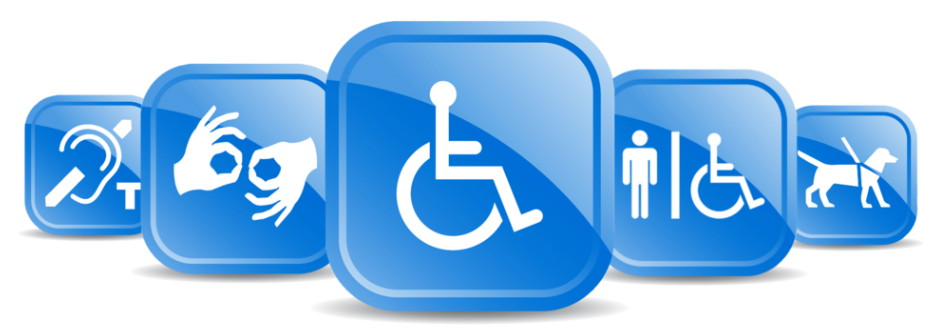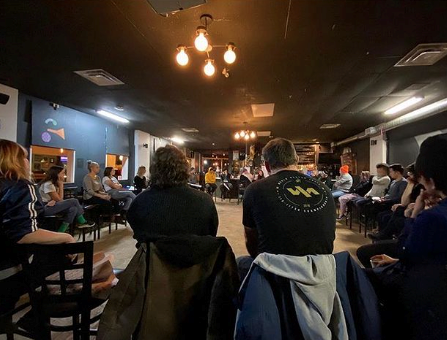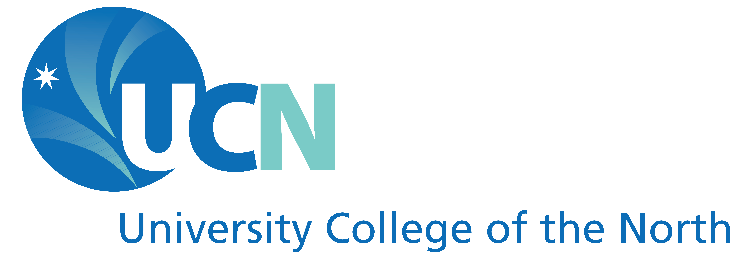 |
Issue 30 | February 2023 |
|
Plan for Your Safety: Creating an Individualized Workplace Emergency Response Plan |
Did you know that close to 1 in 4 Manitobans have a disability, and that most disabilities are invisible? If you have a disability, you have probably thought about how it might impact your safety during an emergency in your workplace. |
For a workplace, planning for emergency responses with special consideration to accessibility barriers is of the utmost importance in promoting safety. It is also the law. With an Individualized Workplace Emergency Response Plan, you can avoid guessing whose arthritic knees cannot descend stairs, which employee has severe asthma, or who may be immobilized by panic attacks, in the case of an emergency evacuation. |
What is an individualized workplace emergency response plan? |
An individualized workplace emergency response plan is a written document that details all assistance an employee needs during an emergency in the workplace. An employee might need assistance with various tasks involved in responding to an emergency, including: |
activating an alarm, or finding out that an alarm is sounding or flashing locating or following paths to building exits communicating with emergency responders moving through crowds in stressful situations travelling through and out of buildings without using elevators finding and using designated waiting areas
|
What should I do if I know I will need help during an emergency? |
Employees who face barriers are the experts on how best to remove them. If you need assistance during a workplace emergency, connect with your manager about your accessibility needs and develop an individualized plan together. Identify and record potential emergency response barriers and possible solutions in the event of an emergency. Some questions to consider are: |
Can you use the emergency exits? Could you find the exit if it were smoky or dark? Can you exit the building without assistance or support? If you need help to evacuate, what instructions do people need to help you?
|
The written plan should be reviewed and updated periodically and list the type of assistance you need, any equipment or devices required and how to use them, the evacuation route and procedure, and an alternative evacuation route. |
Remember: If you have a disability and you inform your workplace that you would like to develop and individualized workplace emergency plan, your employer is required by law to develop one. During this process, you are not required to disclose details about your medical condition or disability, only the type of assistance needed in an emergency. The information you share is kept confidential and can only be shared with your permission with someone who can be designated to help you in an emergency. |
For more information, including free resources and tools, please visit: https://accessibilitymb.ca/employment-standards.html |
|
Accessibility for Manitobans Act Five-Year Review |
 |
The Accessibility for Manitobans Act (AMA) sets out a path to remove, reduce, and prevent barriers through the development of accessibility standards in fundamental areas of daily living. |
The AMA was enacted in 2013, and affects all Manitobans – both people impacted by barriers in their everyday lives and people in a position to remove and prevent these barriers. |
The AMA requires regular reviews to occur every five years. The first review of the AMA occurred in 2018/2019. The second five-year review will take place early 2023 and will be completed by June 2023. |
Sarah Lugtig has been appointed as the reviewer for the Accessibility for Manitobans Act 5-year review. As a lawyer, Ms. Lugtig has worked as in-house counsel for the Manitoba Human Rights Commission and Legislative Counsel in Manitoba’s public service before 2020. Ms. Lugtig is currently involved part-time with Legislative Counsel for ongoing special projects. Under the AMA, the reviewer must consult with the public, specifically people with disabilities and representatives from disability organizations. |
Information about the AMA Review, surveys and upcoming in-person and virtual public consultations will be available soon on EngageMB. Check back for more information. |
|
Introducing Manitoba’s Accessible Information and Communication Standard |
The third accessibility standard focuses on removing and preventing barriers that exist digitally, in-print or through interaction with technology or people. Organizations need to consider the ways in which Manitobans interact with or access information they provide, including on websites, to develop measures, policies and practices providing barrier-free information and communication. |
On May 1, 2023, the Accessibility Standard for Information and Communication comes into effect for the Manitoba government. This is the third accessibility standard from The Accessibility for Manitobans Act. All public servants have a responsibility to ensure compliance with this standard. It addresses barriers to accessing information provided in-print, in-person, on websites or in other formats. |
Visit AccessibilityMB.ca for information, tools and templates and learn more with the following resources: |
|
There are different timelines for other organizations to meet the standard; |
Public sector organizations, libraries and educational institutions must comply by May 1, 2024. Public sector organizations include Crown corporations, regional health authorities, school divisions, municipal and regional libraries, Manitoba's 10 largest municipalities and government agencies, boards and commissions. Educational institutions include colleges, universities, adult learning centers, private vocational institutions, private and public schools and their libraries.
|
Private sector, non-profit organizations and small municipalities must comply by May 1, 2025. |
Private sector organizations include Manitoba business and organizations with one or more employees, such as shops, restaurants, and professional services. Non-profit organizations include charities, places of worship, community organizations, and membership associations.
|
Visit AccessibilityMB.ca for information. |
|
Accessible Transportation Standard Regulation |
|
 |
The Accessible Transportation Standard Regulation is the fourth of five standards under The Accessibility for Manitobans Act (AMA). The AMA sets out a path to remove, reduce, and prevent barriers through the development of accessibility standards in five fundamental areas of daily living. |
In 2020, the Accessibility Advisory Council made their recommendations on an Accessible Transportation Standard to the Minister of Families. In developing their recommendations, the council sought advice from a standard development committee, as well as comments from the public and community disability organizations. |
You can read the draft standard and FAQ’s at the Manitoba Regulatory Consultation Portal. |
Whether you are a person with a disability, a community organization, a municipality, or a transportation provider (or other person/organization), we want your feedback. Submissions are welcome until March 25, 2023. Feedback can be submitted by visiting EngageMB or by emailing MAO@gov.mb.ca. |
Accessible Transportation Webinar |
The Manitoba Accessibility Office is hosting a Zoom webinar on March 22nd 2023 from 1:30 p.m. to 3:30 p.m. to hear your feedback on the proposed Accessible Transportation Standard. |
The webinar will provide an overview of the standard and offer the opportunity to provide your perspective and ask questions. |
ASL interpretation will be available. A recording will also be available to those unable to participate in real-time. |
Click the Zoom link to join the webinar on March 22nd at 1:30 PM CST. |
Share Your Story |
Hearing about your experience is important to us. It helps us plan for future initiatives, such as public awareness campaigns and targeted educational and compliance activities. |
We’re interested in hearing from all Manitobans, including people with disabilities, persons with long-term health conditions or illness, seniors, caregivers, family, friends, and natural supports and others interested in this area. |
Use the story tool on EngageMB or email your story to MAO@gov.mb.ca. |
|
 |
The Second Intake of the Manitoba Accessibility Fund is Now Open |
The Manitoba Accessibility Fund and its grant program provides municipalities, non-profit organizations and businesses in Manitoba with financial support for projects that remove barriers experienced by people with disabilities and promote accessibility across the province. |
Grants of up to $50,000 are available this year. |
Projects must support Manitoba’s accessibility law by: |
raising awareness about the prevention and removal of barriers developing tools, resources and training to support compliance with the law or removing barriers to information and communications
|
This intake period closes on Friday, March 10, 2023. |
|
Eligible organizations can request up to a maximum of $50K to complete a project over a one-year term. MAF does not fund capital projects or requests related to physical upgrades. Each organization can submit one application per intake period. Organizations are able to be listed as project partners on submissions for other organizations. MAF grant recipients from 2022 can submit an application, if it is a new project proposal. All applicants need to complete a Project Budget Estimate Form and attach to the Application Form.
|
To submit your application or to learn more about the Manitoba Accessibility Fund, please visit the Manitoba Accessibility Fund |
Manitoba Accessibility Fund Webinars |
Learn more about the Manitoba Accessibility Fund by joining the upcoming webinar. |
|
|
|
|
Spotlight on Manitoba Accessibility Fund Projects: |
During its pilot year, in 2022 the Manitoba Accessibility Fund Project granted funds to 30 organizations who were committed to accessibility projects throughout the year. In total, over $756 thousand was awarded to grant recipients to complete their accessibility projects. Spotlighted this month is The Good Will Social Club and University College of the North. Learn about their accessibility projects and their successes throughout the year. |
The Good Will Social Club |
The Good Will Social Club is a majority Indigenous-owned, live music venue and eatery located in the West End on Portage Avenue. The Good Will is dedicated to creating a safe and equitable community around inclusion, justice and education. Their goal is to create unique and meaningful experiences in everything they do. Recently The Good Will was lucky enough to receive funding from the Manitoba accessibility fund grant allowing them to create an online hub to contract higher and support 10 content creators who range from photographers, artists writers and creating equity opportunities for indigenous, LGBTQ+, People of Colour and people who experience mental or physical barriers. Over 100 + pieces of content have been created and shared online. |
Thanks to this funding The Good Will saw 20,000 users on their website in 2022 and was able to create awareness for local businesses and members of the community by providing a platform for content creators and their unique voices. With the grant funds provided, The Good Will Social Club was able to purchase equipment necessary to support contact creators as well as provide workshops to their staff by Red Tent and creating a safe space for the team. We were able to implement accessibility requirements to the website and are continuing to improve its usability and accessibility of the site. |
Through this grant, The Good Will has been able to bring new life to the Manitoba community. Content creators have been a vital part of the success of this grant program and we hope to continue developing more amazing content and creating a unique and memorable experience for everybody. |
 |
Red Tent Workshop: https://www.instagram.com/p/B7Q8DmlgJF0/ To learn more about the 10 Content Creators, please visit: https://www.thegoodwill.ca/creators Article submitted by: Donavan Robinson (The Good Will) |
University College of the North |
| University College of the North (UCN) received $50,000 in one-time grant funding to support our Commitment to Accessibility project. UCN is grateful for Manitoba Accessibility Fund’s support and have exciting news to share about the resulting progress. |
|
|
|
|
|
|
|
|
|
This funding has helped us raise awareness of digital accessibility. In September 2022, during our Welcome Back Staff Orientation, 31 employees participated in an Introduction to Digital Accessibility Webinar. This webinar focused on the importance and benefits of digital accessibility, accessibility legislation in Canada, the basics of disability, how people access digital materials, and live demonstrations of different technologies used to access digital materials. |
In January 2023, three half-day training courses on creating accessible educational content were provided to faculty and staff. The first course focused on accessible communication in education (21 registered), the second course focused on making text more accessible (18 registered), and the last course focused on making digital materials more accessible (15 registered). Having faculty and staff knowledgeable on how to incorporate accessible documents into our courses and educational materials will improve accessibility for students. |
UCN is conducting an accessibility audit of our website. The findings of the audit will help us better understand the barriers to information and communication, will help to inform our action plan to address and remove barriers, and will help ensure we are meetings our obligations under the new Accessible Information and Communication Standard. This audit is an important tool that will help support a seamless digital experience for all Manitobans who navigate our website, research programs, register for courses, and access information and services. |
UCN is also upgrading our main library database system with enhanced features and tools that enable users to easily navigate and access the library and research materials. We will be consulting with staff and students in early March for the final phase of this project. |
UCN is also undergoing a review of our workplace and educational accommodation process and purchased six laptops to support the timely deployment of assistive devices for students and employees who require accommodation. |
The Manitoba Accessibility Fund’s support enhances UCN’s commitment to accessibility to all. We look forward to continued improvement. |
 |
Article submitted by: Deveny Zahayko, Policy and Project Manager - University College of the North |
|
Downloadable Training Now Available |
Did you know The Manitoba Accessibility Office offers free training courses on the Accessible Customer Service Standard and the Accessible Employment Standard? |
This free training online is available anytime from anywhere. All courses are presented in plain language and include content to explain the requirements of each of the standards. You will find examples on how to achieve compliance, tips for best practices and other useful resources. |
These training modules are also available for Manitoba businesses or organizations to download and integrate into their internal learning management systems. Visit https://accessibilitymb.ca/online-training.html to learn more. |
|
In the News: |
|
The Hanover School Division launches an accessible after-school program, featuring cooking, art classes, sports and esports. The idea for this program came from a lack of accessible programming within the province. Parents would often refrain from signing up their children for after-school programs because they feared support would not be available. This program allows kids to connect outside of school, build relationships and participate in an extra-curricular program geared toward their abilities. |
Read more about the study by visiting: |
|
|
Upcoming Webinars: |
Accessible Transportation Webinar |
The Manitoba Accessibility Office is hosting a Zoom webinar on March 22nd 2023 from 1:30 p.m. to 3:30 p.m. to hear your feedback on the proposed Accessible Transportation Standard. |
Click the Zoom link to join the webinar. |
Manitoba Accessibility Fund Webinars |
Learn more about the Manitoba Accessibility Fund by joining the upcoming webinar. |
|
|
|
Important Dates: |
|
 |
|